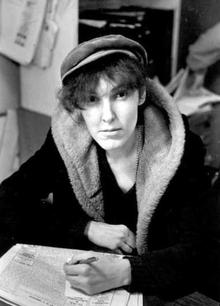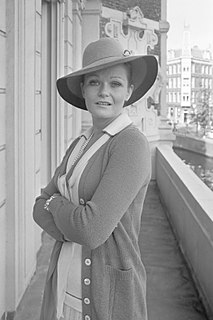A Quote by Edward Albee
The notion that women are less aesthetically profound and innovative than men--just not very important, if you know what I mean--doubtless spreads back to our beginnings as upright animals: the males hunted and killed for the family while the females stayed home in the cave and tended the strange little creatures they were giving birth to.
Related Quotes
...In little more than a single century from 1820 to 19450, no less than fifty-nine million human animals were killed in inter-group clashes of one sort or another.... We describe these killings as men behaving "like animals," but if we could find a wild animal that showed signs of acting this way, it would be more precise to describe it as behaving like men.
There'd been studies over the years supporting the proposition that groups composed exclusively of women usually made intelligent decisions, that exclusively male groups did a bit less well, and that mixed groups did most poorly of all, by a substantial margin. It appeared that, when women were present, testosterone got the upper hand and men took greater risks than they might otherwise. Correspondingly, women in the mixed group tended to revert to roles, becoming more passive, and going along with whatever misjudgment the males might perpetrate.
Our family holidays always include our animals. On Thanksgiving, we love to walk around our farm and visit with our rescued pigs, goats, horses, emus and many other rescued animals. We give them all special vegetables that day, and the whole family enjoys a vegetarian Thanksgiving dinner. We know that the animals are giving thanks that day, and we are also giving thanks for the joy they bring to our lives.
Fathers' sharing in the birth experience can be a stimulus for men's freedom to nurture, and a sign of changing relationships between men and women. In the same way, women's freedom to give birth at home is a political decision, an assertion of determination to reclaim the experience of birth. Birth at home is about changing society.
Sybil's female forebears had valiantly backed up their husbands as distant embassies were besieged, had given birth on a camel or in the shade of a stricken elephant, had handed around the little gold chocolates while trolls were trying to break into the compound, or had merely stayed at home and nursed such bits of husbands and sons as made it back from endless little wars. The result was a species of woman who, when duty called, turned into solid steel.
Our goal in the '70s was to end the closed door era. There were so many things that were off limits to women, policing, firefighting, mining, piloting planes. And the stereotypical view of people of a world divided between home and child caring women and men as breadwinners, men representing the family outside the home.
[M]any females would, even assuming complete economic equality between the sexes, prefer residing with males or peddling their asses on the street, thereby having most of their time for themselves, to spending many hours of their days doing boring, stultifying, non-creative work for somebody else, functioning as less than animals, as machines, or, at best - if able to get a "good" job - co-managing the shitpile. What will liberate women, therefore, from male control is the total elimination of the money-work system, not the attainment of economic equality with men within it.
It is important to note that research has shown that men who have abusive mothers do not tend to develop especially negative attitudes toward females, but men who have abusive fathers do; the disrespect that abusive men show their female partners and their daughters is often absorbed by their sons.
So while a small number of abusive men do hate women, the great majority exhibit a more subtle-though often quite pervasive-sense of superiority or contempt toward females, and some don't show any obvious signs of problems with women at all until they are in a serious relationship.
A little more kindness, A little less speed, A little more giving, A little less greed, A little more smile, A little less frown, A little less kicking, A man while he's down, A little more "We", A little less "I", A little more laugh, A little less cry, A little more flowers, On the pathway of life, And fewer on graves, At the end of the strife.





































